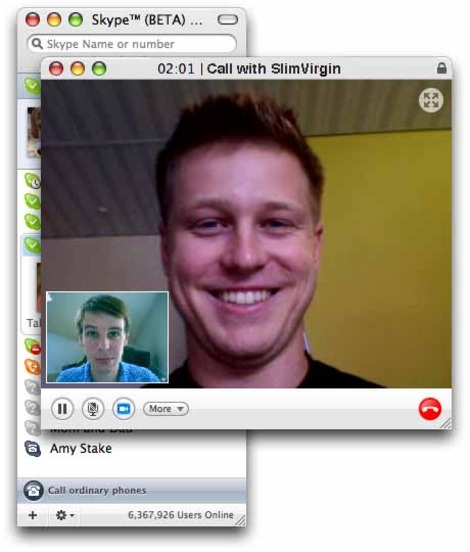
How to Get an EFL Teaching Job in Thailand Via Skype
For many teachers who want to teach EFL in Thailand, interviewing for a teaching job via Skype is something they may have to eventually do, as more and more schools use the internet service to recruit new employees who aren’t able to be in country for an interview. While it may be nerve-wracking for some, interviewing via Skype for a teaching job in Thailand isn’t any different than interviewing for a teaching position in person, so your preparation and your appearance should be similar.
Change your Skype name if not professional – I have a professional sounding name on Skype but many other Skype users don’t. If you’re interviewing for an EFL job in Thailand and your username isn’t either, you may want to change it to your real name instead of the ‘handle’ you’ve been going by for years. Derek Jamison may easily get a job teaching EFL overseas. StudMuffin47 might just not.
Dress professionally – If your interview for an EFL teaching job abroad is via telephone, it doesn’t matter what you wear or how you look. Via Skype, however, and the interviewer will assess you and the impression you are giving the minute the video clicks on. Dressing professionally also gives you more self-confidence, I believe.
Remember too, don’t wear a dress shirt paired with pajama bottoms as you don’t think the interviewer will see them. One of my former colleagues did just that only to discover she needed to stand up to go into the other room for a lesson plan the interviewer wanted to ask about.
A beautiful linen shirt and a pair of flannel pajamas with ducks on them. Not exactly what a teacher should be wearing, I would say.
If you’re female, this article about what to wear for women teachers in Thailand might help. Or for everyone, here is the clothing you should be wearing.
Clean your room – It’s more than likely you’ll be at home when the Skype call comes in, meaning the interviewer will not just be assessing you but also taking note of your surroundings. Make sure everything is clean and tidy, and anything embarrassing is removed from camera view. After all, you really don’t want your potential new boss to see your just-washed underwear drying in the background.
A blank wall is best or, if that’s not possible, bookshelves, a painting (not a rock music poster or a nude model), or curtains will suffice.
Position the camera and your chair – Get your computer set up and the camera in the correct position before the call comes in. I once had a Skype call with a man in Israel who moved the camera every 30 seconds during the entire 20-minute call. Annoying doesn’t even begin to describe it.
Remember, you don’t want to give the interviewer any excuses not to like you, so position the camera correctly well before the Skype call comes in and make sure your chair is set far enough back that your face isn’t taking up most of the screen. Then leave everything alone, sit still and don’t fiddle with them.
Don’t forget about lighting – If I use the camera on my computer without any additional lighting, the picture is dark and I look like I have a double chin (I don’t, really, I don’t). So, I always put a desk lamp with a low-wattage bulb behind my computer screen and angle it so it shines on my face. Not only did this make my face look brighter, it also made me look a few years younger and that’s always advantageous for any teaching position overseas.
Smile – When the video clicks on, you should be smiling. First impressions are the absolute most important part of a Skype interview, and if the first impression is of you scowling into the camera you’ve already failed stage one. Smiling also helps to relax you and makes you appear less nervous.
A school recruiter is not only assessing your qualifications, teaching skills and experience but is also considering how you are likely to appear in front of a class of students.
Smiling and you’re already half way there. Frowning and looking uncomfortable, and there are too many other teachers who are naturally relaxed and comfortable with their students without hiring the girl or guy who doesn’t look personable.
Speak slowly and clearly – I’ve been teaching overseas for so many years, it’s natural for me to speak a little slower and more clearly and enunciate my words slightly if I’m not speaking to a native English speaker. That’s because, no matter how fluent they are in English, there are literally thousands of accents all over the world, so they may not be familiar with yours.
Once the Skype call begins, you should be able to figure out quickly how easy it is for the interviewer to understand you and moderate your speech accordingly.
Don’t, however, speak to him like he’s a child using too simple language or, heaven forbid, with broken English as no teacher hoping to get a job teaching EFL in Thailand should ever sound like that.
Now, read this for tips on how to interview for a teaching job in Thailand.







